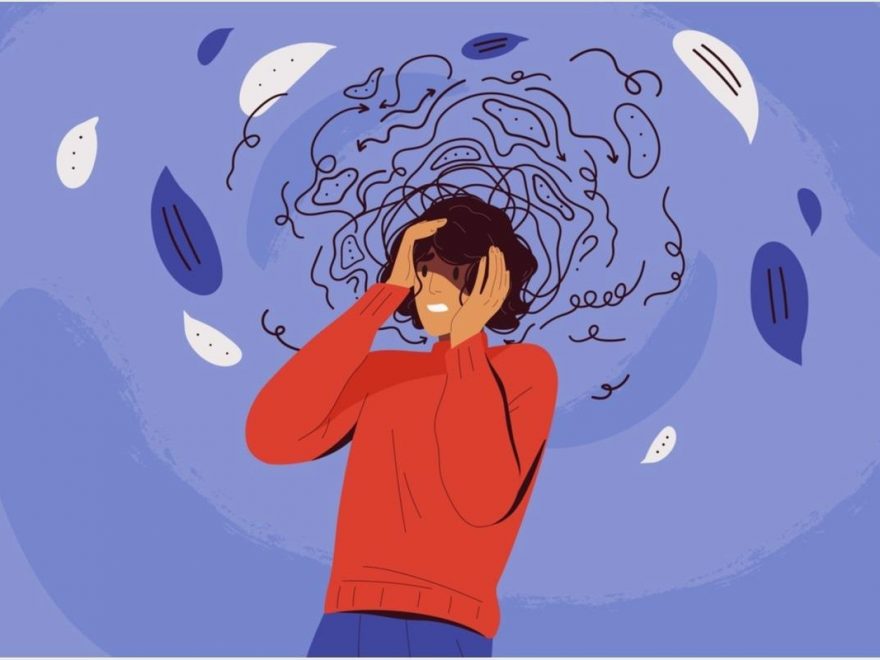In a recent study published in the Journal of Clinical Medicine, researchers described the results of a multi-center study (LONG-COVID-EXP-CM) that investigated sex differences in coronavirus disease 2019 (COVID-19)-related symptoms and long-term post-COVID-19 symptoms in a group of previously hospitalized COVID-19 survivors in a large Spanish population.
The COVID-19 pandemic has been linked to an increase in gender inequality. Recognizing how COVID-19 affects women and men differently is a crucial step toward a better understanding of the pathophysiology and nature of COVID-19 sequelae and promoting individualized healthcare solutions.

Study: Female Sex Is a Risk Factor Associated with Long-Term Post-COVID Related-Symptoms but Not with COVID-19 Symptoms: The LONG-COVID-EXP-CM Multicenter Study. Image Credit: Good Studio / Shutterstock.com
About the study
The LONG-COVID-EXP-CM is a multi-center cohort study involving persons hospitalized due to SARS-CoV-2 infection in five hospitals in Madrid (Spain) during the first wave of the pandemic (from 10 March to 31 May 2020). All diagnoses were made based on the presence of positive radiological findings at hospital admission and a real-time reverse transcription-polymerase chain reaction (RT-PCR) analysis of nasopharyngeal/oral swab samples.
Those who agreed to participate were contacted by trained healthcare researchers for a telephone interview, which followed the same procedures as population-based survey studies. The presence of any symptom from a predefined list of post-COVID symptoms, such as fatigue, dyspnea (at rest or exertion), anosmia, ageusia, hair loss, throat pain, diarrhea, palpitations, cough, cognitive blunting (brain fog), skin rashes, memory loss, visual disorders, voice problems, gastrointestinal disturbances, pain symptoms, or concentration loss, was systematically inquired. It was stressed that symptoms should have occurred after being released from the hospital (post-COVID-19 related symptoms). A single-subject could report multiple symptoms, and the total number of symptoms was tallied.
The Hospital Anxiety and Depression Scale (HADS) and Pittsburgh Sleep Quality Index (PSQI) were used to assess the presence of symptoms related to anxiety or depression and to determine sleep quality, respectively. Sex (male, female) was the independent variable in the initial binary statistical analysis, whereas clinical, COVID-19 symptoms at hospital admission, post-COVID symptoms, and psychological data were the dependent factors.
Key findings
According to this multi-center cohort study, COVID-19 symptoms at hospital admission were similar in males and females, but females were more likely than males to develop post-COVID symptomatology eight months after hospital discharge. As a result, sex and gender differences should be considered when treating people who have recovered from COVID-19 but have developed post-COVID symptoms.
A total of 1,969 people (age: 61, SD: 16 years, 46.4% women) were evaluated 8.4 months following discharge. There were no statistically significant gender differences in COVID-19 beginning symptoms at hospital admission. However, eight months after the infection, up to 60% of hospitalized COVID-19 survivors showed post-COVID-19 symptoms. Females experienced 2.25 post-COVID-19 symptoms, compared to 1.5 in males. Female sex was linked to three post-COVID-19 symptoms, including post-COVID-19 fatigue, dyspnea, pain, hair loss, ocular issues, depressed levels, and poor sleep quality after all covariates were taken into account.
As per the previous hypothesis, old age is a risk factor for post-COVID-19 symptoms. However, since age was not substantially linked with post-COVID-19 symptoms in the current study, the researchers did not discover such a connection after correcting for hospital admission characteristics. Similarly, they found no general sex differences in COVID-19-related symptoms at hospital admission (except for the prevalence of headache as an initial symptom, which was more common in females than in males) or during the hospital stay. Also, whereas several medical comorbidities, such as hypertension, diabetes, or cardiovascular disorders, have been linked to an increased risk of severe illness or mortality during the acute phase of infection, the researchers found no link between pre-existing medical comorbidities and post-COVID-19 symptoms.
Limitations and conclusion
There are a few drawbacks to the study. First, the study only included COVID-19 survivors who were hospitalized; thus, these results should not be generalized to non-hospitalized patients. As a cross-sectional design was used, the researchers could not track the progression of post-COVID-19 symptoms after release from the hospital.
In conclusion, females were more likely than males to experience long-term post-COVID-19 symptoms such as depression, anxiety, and poor sleep quality. Thus, healthcare institutions should take gender differences into account in managing COVID-19 long haulers.
“Female sex was a risk factor for the development of some long-term post-COVID symptoms including mood disorders.”
- Fernández-de-las-Peñas, C.; Martín-Guerrero, J.D.; Pellicer-Valero, Ó.J.; Navarro-Pardo, E.; GómezMayordomo, V.; Cuadrado, M.L.; Arias-Navalón, J.A.; Cigarán-Méndez, M.; Hernández-Barrera, V.; Arendt Nielsen, L. Female Sex Is a Risk Factor Associated with Long-Term Post-COVID Related-Symptoms but Not with COVID-19 Symptoms: The LONG-COVID-EXP-CM Multicenter Study. J. Clin. Med. 2022, 11, 413. https://doi.org/10.3390/jcm 11020413, https://www.mdpi.com/2077-0383/11/2/413
Posted in: Men's Health News | Medical Research News | Medical Condition News | Women's Health News | Disease/Infection News
Tags: Anosmia, Anxiety, Brain, Brain Fog, Coronavirus, Coronavirus Disease COVID-19, Cough, Depression, Diabetes, Diarrhea, Dyspnea, Fatigue, Hair, Hair Loss, Headache, Healthcare, Hospital, Medicine, Mortality, Nasopharyngeal, Pain, Pandemic, Pathophysiology, Polymerase, Polymerase Chain Reaction, SARS, SARS-CoV-2, Skin, Sleep, Throat, Throat Pain, Transcription

Written by
Saurabh Chaturvedi
Saurabh Chaturvedi is a freelance writer from Jaipur, India. He is a gold medalist in Masters in Pharmaceutical Chemistry and has extensive experience in medical writing. He is passionate about reading and enjoys watching sci-fi movies.
Source: Read Full Article
